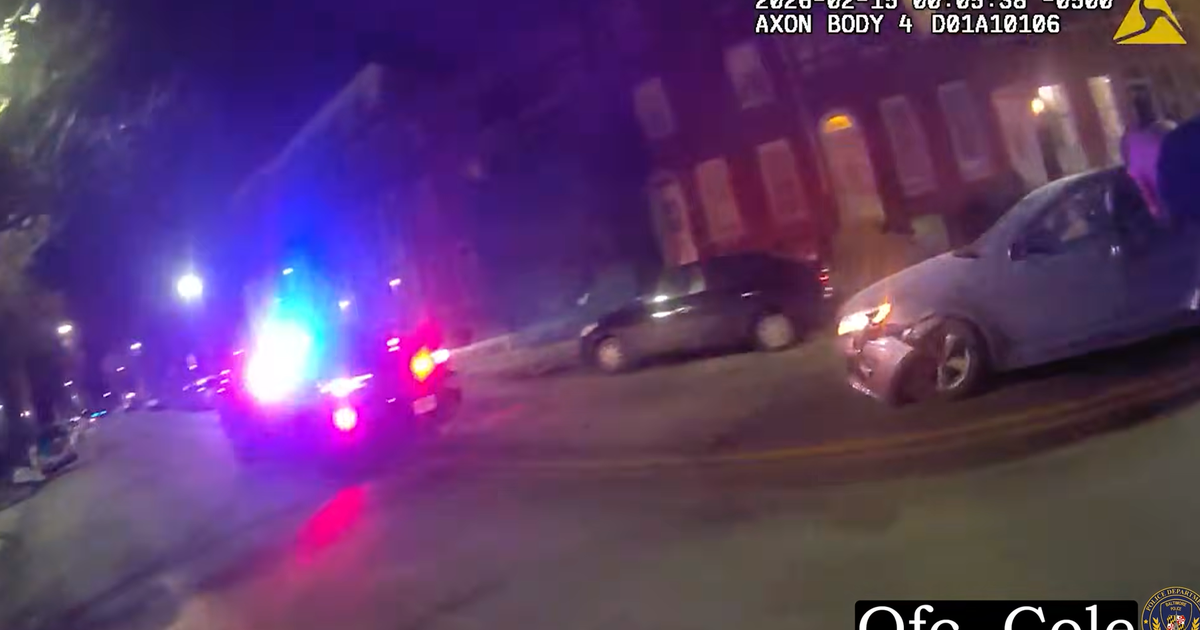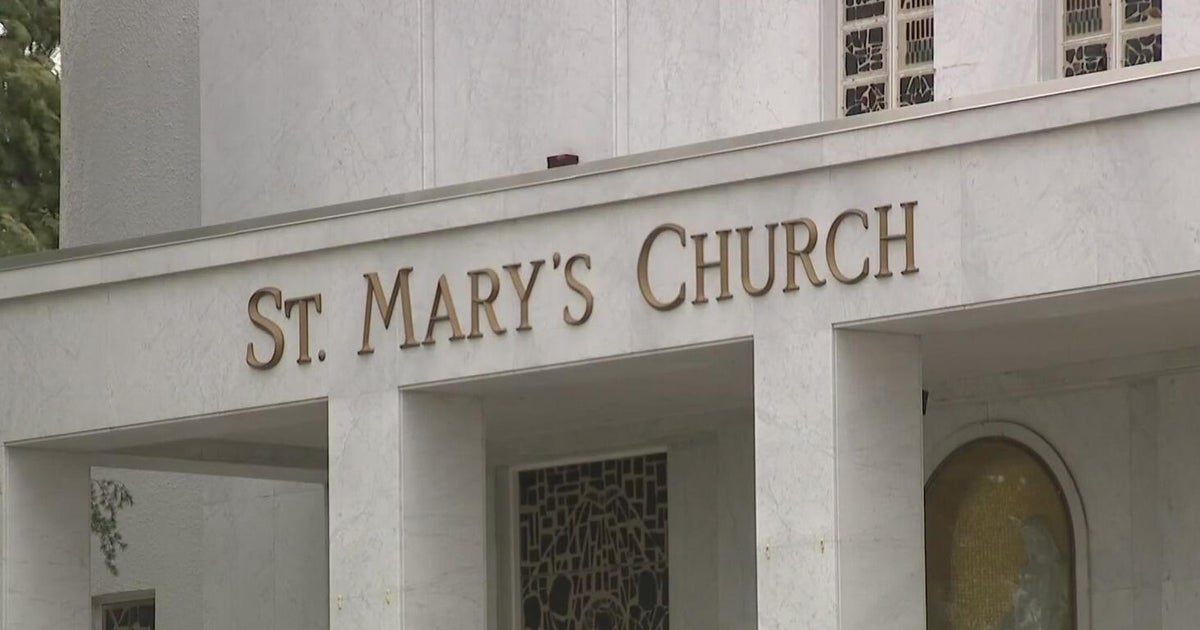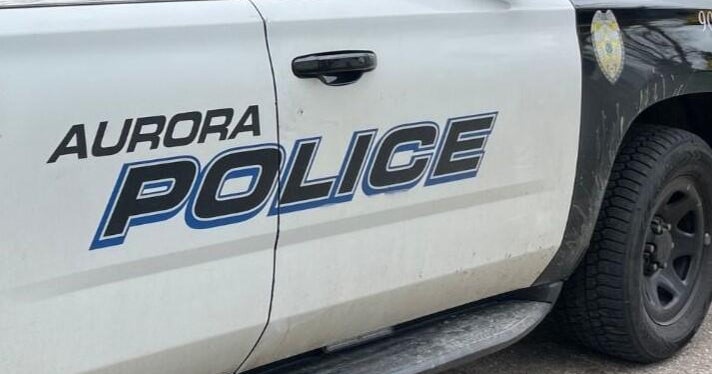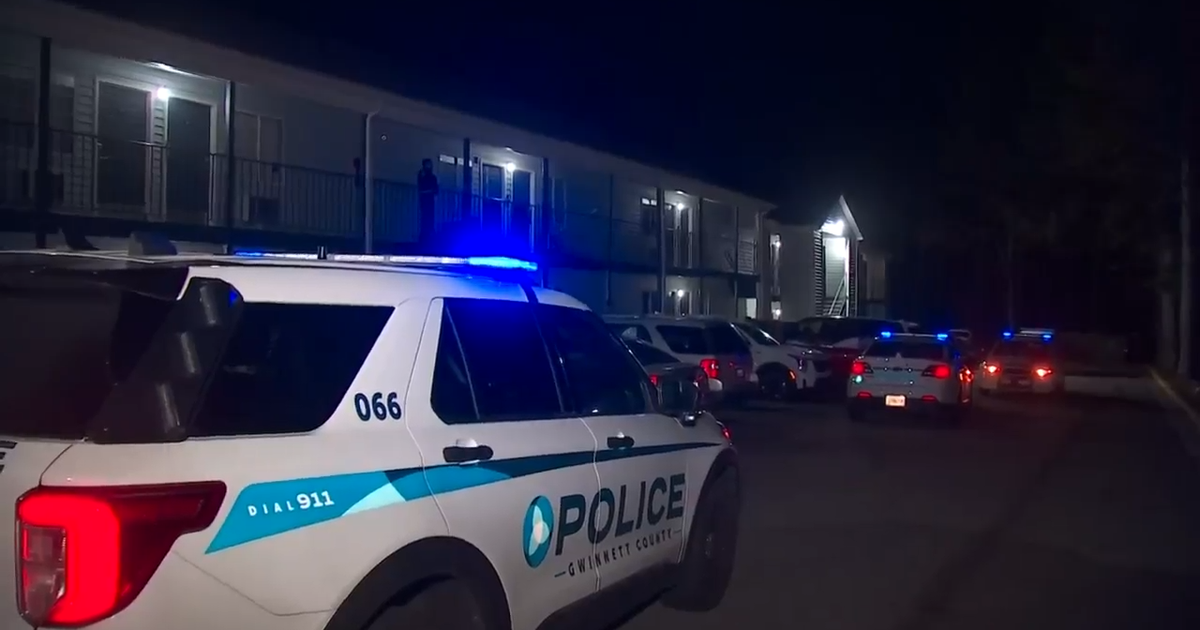Baltimore's Drunk-And-Armed Police Rule Questioned
BALTIMORE (AP) -- Off-duty police officer Gahiji A. Tshamba was enjoying a summer evening in a historic neighborhood known for its nightlife when he encountered trouble around closing time. He was carrying his department-issued, semiautomatic Glock handgun -- unfortunately, as it turned out.
After he left the Red Maple nightclub around 1:30 a.m., Tshamba saw a man groping a woman and confronted him, starting a heated argument. The officer eventually drew his gun and emptied the clip, firing 13 shots -- 12 of which struck and killed Tyrone Brown, an unarmed Iraq war veteran. The June 5 shooting resulted in a murder charge for Tshamba.
There's nothing unusual about a Baltimore officer packing heat for a night at the bars. In fact, officers are generally required to do so. But recent shootings involving alcohol and off-duty officers have some experts decrying the department's gun policy as an outdated approach other big cities have abandoned.
Baltimore's policy "boils down to the whole dated concept that a cop was a cop 24 hours a day. New York and many other places have become much more realistic," said Eugene O'Donnell, a former New York officer and current lecturer at John Jay College of Criminal Justice.
Baltimore Police Commissioner Frederick H. Bealefeld III is considering changes, such as a restriction on drinking while armed.
But he's reluctant to toss out a decades-old policy that he says helps protect the public.
An Associated Press review of investigative records shows that since 2005, off-duty Baltimore officers have shot people 15 times.
In a dozen cases, the officers intervened to stop crimes or defend themselves. But the three shootings that led to officers being disciplined -- and another instance when an off-duty officer was killed by a fellow cop -- involved alcohol or took place around bars.
Baltimore's policy on off-duty officers and guns is a single sentence: "Sworn members, off-duty, within the city of Baltimore, shall be suitably armed, except at such times, or under such circumstances, or when engaged in such activities as a prudent person would reasonably conclude the wearing of a firearm to be inappropriate."
It's up to officers to decide when it's inappropriate to be armed, although police officials cite obvious examples such as swimming or playing sports. But off-duty officers aren't allowed to leave their handguns in their cars -- they're told to lock them up at home.
Any officer who stops for a beer after work, then, is expected to be armed. And that, experts say, is a problem.
"You're required to carry a gun, but if you do get drunk and do something stupid, then you're held responsible," said Peter Moskos, a professor at John Jay College and former Baltimore officer.
Other big cities have ditched or modified policies requiring officers to carry guns at all times. Instead, some train officers to be good witnesses and call 911 when they see a crime during their downtime.
The International Association of Chiefs of Police recommends that departments make it optional for off-duty officers to carry guns. But departments don't have to follow the association's model policy.
Researchers who've studied fatal police-on-police shootings also say departments should discourage off-duty officers from using force.
"This is something that's a national problem," said Sam Walker, a criminologist at the University of Nebraska-Omaha. "A fair number of officer-involved shootings do involve off-duty officers, which is a major issue."
In Baltimore, one of the nation's most violent big cities, Bealefeld and others argue officers can't afford to let their guard down.
The records obtained by The AP show that since 2005, off-duty officers have fired their handguns in an attempt to stop nine armed robberies and one stabbing. In another case, an officer wounded a would-be robber before the officer was fatally shot. Another officer shot and killed a man he saw breaking into his car.
Bealefeld argues the documents don't tell the whole story of how the policy protects the public. The department does not keep records of instances in which off-duty officers draw their guns to stop a crime but don't open fire.
But Tshamba's case isn't the only questionable use of a weapon by carousing off-duty police. Former officer Patrick Dotson pleaded guilty to assault for shooting at two people after a brawl outside a bar. Officer Norman Stamp drew his gun during a strip club brawl, and an on-duty officer fatally wounded him. Stamp didn't identify himself as police until after he was shot.
Tshamba, meanwhile, had previously shot someone after a night of drinking. In 2005, the black officer said a group of white men used racial taunts and assaulted him while he was off-duty. Tshamba fired several shots, and a 17-year-old boy was wounded in the foot.
A breath test found the officer had a blood-alcohol percentage of .12 -- well above the state's threshold for drunken driving.
The department disciplined Tshamba, but the shooting was ruled justified. He wasn't charged with a crime.
Tshamba's attorneys say he wasn't drinking the night he shot Brown, and he refused a breath test afterward. He's being held without bail on a first-degree murder charge. His lawyers contend he was acting in an official capacity and feared for his life when he opened fire.
But if Tshamba had been an officer in several other East Coast cities, he couldn't have brought his gun in the first place.
In Washington, D.C., officers are barred from carrying their weapons if they plan to drink. Philadelphia police officers are told not to carry their guns if there's a likelihood they'll be drinking or taking prescription drugs. It's the same thing in New York, which also requires breath tests for officers involved in shootings.
Several rank-and-file Baltimore officers discussed the gun policy on the condition that their names not be used because they're prohibited from talking about it with reporters.
The officers said they and their colleagues take varying approaches to the question of whether to bring their guns to bars.
Many do it all the time. Some leave them at home, concluding that a night of heavy drinking is an inappropriate time to be armed.
Others avoid the problem by refusing to socialize within the city.
Their boss, Bealefield, defended the policy against criticism sparked by cases like Tshamba's, saying the actions of a few shouldn't affect officers' ability to protect themselves and others.
"Those are some extraordinarily bad situations that have occurred," Bealefeld said. "But more often than not, and indeed every day, these guys make great judgments that you never read about or hear about."
(Copyright 2010 by The Associated Press. All Rights Reserved.)






